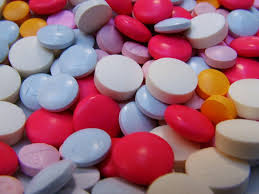Symptom Finder - Taste Abnormalities
TASTE ABNORMALITIES
The causes of taste abnormalities can be recalled simply by visualizing the various structures around the tongue, mainly the nose, throat, teeth, gums, joints, and nerves. It is wise to start our discussion with the tongue.
Tongue—Glossitis, stomatitis
Nose—Rhinitis, sinusitis, and hay fever
Throat—Tonsillitis and pharyngitis
Teeth—Dental cases, alveolar abscess
Gums—Gingivitis
Joints—Temporomandibular joint syndrome
Nerves—Bell palsy, brainstem lesions, uncinate fits (epilepsy)
Unfortunately, this method would fail to help recall the drugs and poisons that cause taste abnormalities such as penicillamine, bismuth, iodine, bromide, and mercury.
Approach to the Diagnosis
Careful examination of the nose and throat ought to reveal most of the above conditions. A neurologic examination should reveal Bell palsy and brainstem lesions. X-ray of the teeth will demonstrate dental cases and abscess. A wake-and-sleep electroencephalogram (EEG) with nasopharyngeal electrodes will be necessary to diagnose uncinate fits.
Laboratory studies include a urine drug screen, CBC, chemistry panel, and venereal disease research laboratory (VDRL) test. A psychiatrist should be consulted if there are no objective findings and these studies are negative.
The causes of taste abnormalities can be recalled simply by visualizing the various structures around the tongue, mainly the nose, throat, teeth, gums, joints, and nerves. It is wise to start our discussion with the tongue.
Tongue—Glossitis, stomatitis
Nose—Rhinitis, sinusitis, and hay fever
Throat—Tonsillitis and pharyngitis
Teeth—Dental cases, alveolar abscess
Gums—Gingivitis
Joints—Temporomandibular joint syndrome
Nerves—Bell palsy, brainstem lesions, uncinate fits (epilepsy)
Unfortunately, this method would fail to help recall the drugs and poisons that cause taste abnormalities such as penicillamine, bismuth, iodine, bromide, and mercury.
Approach to the Diagnosis
Careful examination of the nose and throat ought to reveal most of the above conditions. A neurologic examination should reveal Bell palsy and brainstem lesions. X-ray of the teeth will demonstrate dental cases and abscess. A wake-and-sleep electroencephalogram (EEG) with nasopharyngeal electrodes will be necessary to diagnose uncinate fits.
Laboratory studies include a urine drug screen, CBC, chemistry panel, and venereal disease research laboratory (VDRL) test. A psychiatrist should be consulted if there are no objective findings and these studies are negative.

